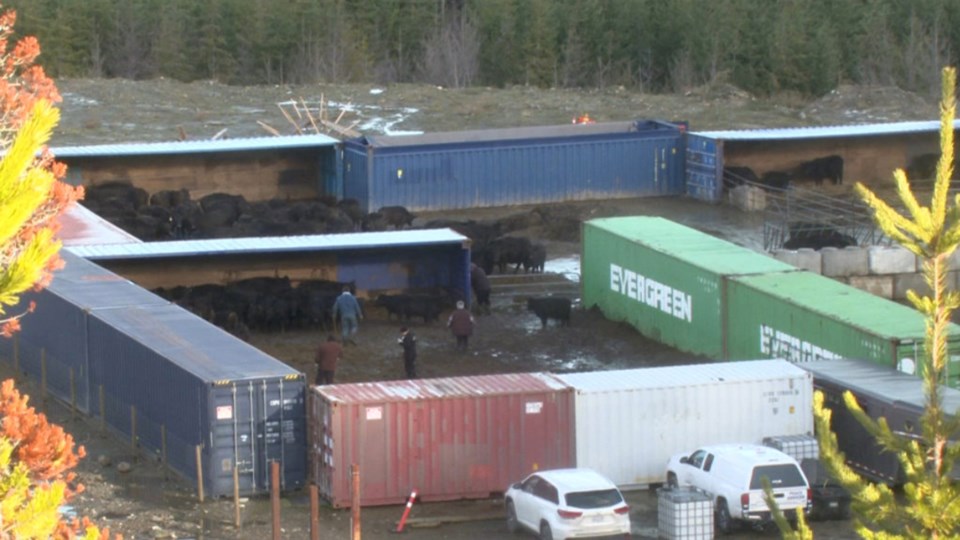The British Columbia SPCA has seized 216 head of cattle from a farm near Shawnigan Lake, saying the beef herd was neglected, knee-deep in mud and showing severe signs from lack of nourishment and infection.
Kaley Pugh, regional manager of cruelty investigations for the B.C. SPCA, said the conditions the cattle were living in were “among the worst I’ve ever seen.”
SPCA officers were on the farm site, off Goldstream Heights Drive, on Wednesday and Thursday, removing the last of the cattle to an undisclosed Island site.
The SPCA has recommended charges of animal cruelty to Crown counsel as it continues its investigation. As in all animal seizure cases, Pugh said, the owner of the cattle has an opportunity to appeal the removal of the animals.
Among the herd were 80 recently weaned calves.
“The animals were suffering from a wide range of issues and illness, including emaciation, lameness, eye infections, as well as pneumonia,” Pugh said.
The SPCA executed a warrant to remove the animals after the owner failed to comply with orders to address issues related to inadequate shelter, lack of sufficient feed and water, living conditions — including cattle kept in areas knee-deep mud — and lack of veterinary care.
The Black Angus cow-calf herd were in various states of poor health, said Pugh. Some water and feed was being provided, but it wasn’t sufficient to ensure healthy animals. “Some were worse off than others,” Pugh said.
Several organizations helped to rescue the animals, Pugh said.
The Malahat Fire Department brought a tanker truck to fill water troughs for the cattle. Farmers from the B.C. Dairy Association provided manpower and resources for the large seizure, and several haulers worked “tirelessly to ensure the cattle were loaded and transported safely under extremely challenging circumstances,” Pugh said.
She was confident most of the animals will recover. All are being assessed and receiving veterinary care.
dkloster@timescolonist.com



